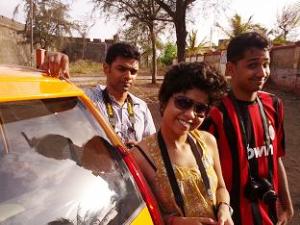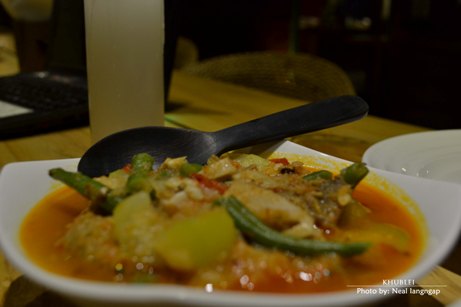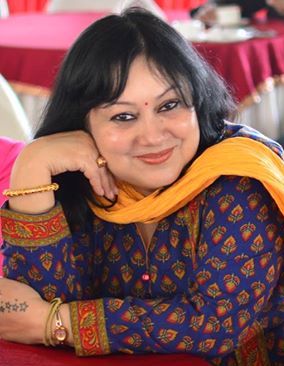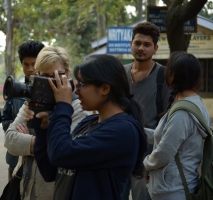Musically, Assam in general and Guwahati in particular has always embraced a variety of genres. Indeed, in this premier city of India’s Northeast, one can find a number of categories of music, from the folk to the Shastriya, from the devotional to the staunchly secular, from vocal to a variety of instruments.
This welcoming attitude to music has of late spread to Western music too. The city is home to music bands that play rock and pop with great aplomb. Their popularity has spread all over the region, and several have made a name for themselves in the metro cities of the country, as well.
In all this, though, what was not heard was that cornerstone of Western music, the piano. While this beautiful instrument was popular in the surrounding hill States of Assam, its cadences were missing from the public stages of Assam’s valleys. This, even as accomplished pianists from Meghalaya and Nagaland take the world by storm.
Assam’s relationship with the piano has been different. It has always been seen as an aspirational instrument, something that was always associated with a `Western’ lifestyle. Reinforcing this was the fact that the early pianos were brought into tea garden bungalows by the British. After they left, the difficulties of importing new ones made those that were left behind, prized possessions. They were sold, and resold, to those who wished to own them. It was no accident, that for the most part, those who learned to play the piano came from comparatively affluent backgrounds. Even tuning them – a mandatory and routine exercise – entailed getting a specialized tuner in from Calcutta. An expensive proposition, no doubt. How many in this impoverished land could afford it?
With the advent of electronics, it became much easier to play the keyboards. Digital pianos and electronic keyboards were suddenly available everywhere. And yet, the aspirational value of the acoustic piano remained. The difficulties of owning them deterred those who loved its sound, with the way an accomplished musician was able to get pure melodies and iconic compositions to pour out of the instrument in a waterfall of music.
Besides, there was a dearth of teachers. Indeed, those who wished to sit for their music exams conducted by the Trinity College of Music, for instance, had to go to Shillong to do so in those days.
Things are now slowly changing. With economic liberalization has come the ability to import new pianos. Besides, cheaper ones made in places such as Indonesia and China has ensured that they are now within the reach of the middle classes too. Indeed, pianos can actually be bought in Guwahati, at a showroom for musical instruments in the heart of the city. Concurrently, there has been a gradual increase in the number of serious students who now study the piano under trained teachers. To make things easier for them, examinations are now conducted by the Trinity College of Music at Guwahati.
Even so, it is still a rarity to have a concert featuring players on the acoustic piano in the city.
Memorably, Guwahati’s piano prodigy Ronojit Chaliha had a concert in the city some months ago. Following that concert, came Cadenza, an evening of music on the piano featuring mainly Promiti Phukan and her students. This was held on 19th January, 2013 to a packed audience at the ITA Hall, Machkowa.
A graded Trinity College of Music pianist, Promiti has been teaching the piano in places such as Bangalore for years now. For the last three years, after relocating to Guwahati, she has been teaching this magical instrument to a growing number of music lovers of all ages, though mainly to children. The rigour of her training, and her disciplined approach were apparent from the moment the curtains parted to show the beautifully designed set in black and white. This same discipline was obvious in the smooth way in which the entire show was conducted, and the attention to all details, including dress and deportment. It is these little things that add to the visual impact of the audio presentations, to make a show a success in totality.
The concert featured an eclectic mix of pieces, ranging from Chopin’s Nocturne in E Flat Major Op 9 No 2 by Promiti herself, to the well known Que Sera Sera played by five year old Divyana Shandilya. There were also such evocative pieces as Pirates of the Caribbean by Prayashi Bora and indeed several others. Each child played her piece confidently and with sensitivity. The melodiousness of execution that is Promiti’s hallmark was amply seen even in her students.
The two chorus items with vocals by the students were Peter Frampton’s People Over the World and Michael Jackson and Lionel Richie’s We are the World were well synchronised.
Promiti’s teacher Rajeswar (Bulu) Bordoloi was heard on stage on the piano, as well, when he played Love Story and La Cumparasita. He is one of the best known musicians of the State, and is a vast reservoir of theoretical as well as practical knowledge of Western music, both classical and semi classical. Bordoloi’s expertise and sensitive handling of the pieces had the audience very appreciative. Promiti’s felicitation of him was truly touching, and a reflection of the finest tradition of Guru Shishya tradition. Bordoloi was joined by his student, Promiti and her student, Sanjana, when they played the foot-tapping In the Mood, accompanied by Rittique Phukan on the drums. Rittique is the frontman for the very popular band Voodoo Child. This vibrant exposition was truly a treat for the many connoisseurs of western music who were present that evening.
Another highlight of the evening was the presence on stage of Ronojit Chaliha, who played the pulsating Toccata and then a medley of Abba songs, which had the audience clapping in appreciation. This young musician is someone to watch out for. He has already won musical laurels across the country. His technical mastery of his medium is matched by his emotive understanding of the musicality of the piece he happens to be playing.
All in all, there were eighteen carefully chosen pieces that were showcased that evening. Promiti ended the show with the moving Asomiya anthem, O Mor Aponar Desh. The mellifluousness of her piano interpretation brought a poignant dimension to Lakshminath Bezborua’s lyrical tribute to a beloved motherland. Her piece showed that given musical sensitivity, it is possible to play melodies of the subcontinent to great effect on this Western instrument.
One looks forward to more such programmes of Western music on the piano in the near future. For, piano is an instrument that has now arrived on the musical scene of the State in no uncertain terms.
Find us on facebook: facebook.com/TheThumbPrintMag







































